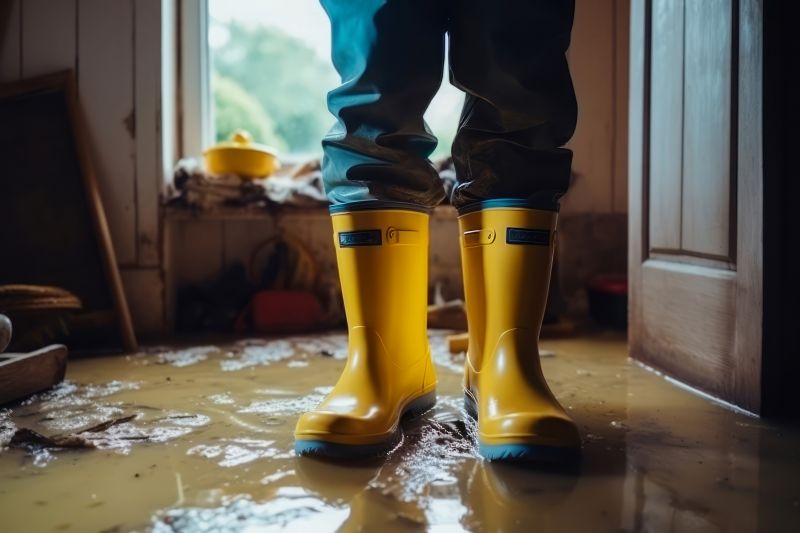Essential Storm Restoration Products for Rapid Property Recovery
Get insights into the most effective tools and supplies to help you restore your home quickly after storm impact.
 Storm restoration projects in Flower Mound, TX, often require a comprehensive selection of products designed to repair and reinforce structures affected by severe weather. From damaged roofing to compromised siding and broken windows, a wide array of tools and materials are essential for effective restoration. Properly chosen products can help ensure safety, durability, and long-lasting results for homeowners and contractors alike. When selecting storm restoration supplies, it is important to consider the specific needs of the property, the severity of storm damage, and the local climate conditions.
Storm restoration projects in Flower Mound, TX, often require a comprehensive selection of products designed to repair and reinforce structures affected by severe weather. From damaged roofing to compromised siding and broken windows, a wide array of tools and materials are essential for effective restoration. Properly chosen products can help ensure safety, durability, and long-lasting results for homeowners and contractors alike. When selecting storm restoration supplies, it is important to consider the specific needs of the property, the severity of storm damage, and the local climate conditions.
Top Overall Option
Heavy-Duty Weatherproofing Sealant
A versatile sealant designed to provide a durable, weather-resistant barrier on roofs, siding, and other exterior surfaces. It offers excellent adhesion, flexibility, and resistance to water infiltration, making it suitable for various storm damage repairs. This product can help protect structures from future weather events by sealing cracks and gaps effectively.
Types of Products For Storm Restorations
Impact-Resistant Windows
Windows built to withstand hail and debris impact, providing enhanced protection for storm-prone areas.
Heavy-Duty Roofing Materials
Roofing shingles and panels designed for high wind and hail resistance to improve durability.
Storm-Resistant Siding
Exterior siding materials that resist cracking, warping, and impact damage from severe weather.
Waterproof Membranes
Underlayment and barrier membranes that prevent water intrusion and protect structural integrity.
Reinforced Gutters and Downspouts
Heavy-duty gutter systems capable of handling heavy rainfall and debris without clogging or damage.
Emergency Repair Kits
Portable kits containing essential tools and materials for quick temporary fixes after storm damage.
Heavy-Duty Sealants and Caulks
Sealants designed to close gaps and cracks, preventing water and air infiltration.
Impact-Resistant Doors
Doors constructed to resist impact and high winds, enhancing entryway security.
Structural Reinforcement Products
Brackets, braces, and supports to reinforce weakened structural elements.
Portable Generators
Reliable power sources for use during power outages caused by storms.
Safety Equipment
Protective gear, ladders, and harnesses essential for safe restoration work.
Heavy-Duty Tarps
Durable tarps for covering damaged areas temporarily and preventing further water intrusion.
Hail-Impact Roof Coatings
Specialized coatings that can add an extra layer of impact resistance to existing roofs.
Storm Drain Covers
Heavy-duty covers to prevent debris blockage and facilitate water runoff management.
Dehumidifiers and Air Movers
Equipment to dry out water-damaged interiors and prevent mold growth.
Popular Choices
Widely used for their ability to withstand storm debris impact and reduce damage risk.
Commonly selected for their durability against high winds and hail.
Popular for protecting exterior walls from impact and weather-related damage.
Frequently used in roof and foundation repairs for water intrusion prevention.
Chosen to handle increased rainfall and debris during storms.
Valued for quick response and temporary fixes immediately after storm events.
Popular for sealing cracks and preventing further damage.
Selected for enhanced security and impact resistance in storm-prone areas.
Often used to bolster weakened framing and support structures.
Favored for reliable power during outages caused by storms.
Essential for ensuring safety during storm damage repairs.
Commonly used for temporary coverage of damaged areas.
Gaining popularity for extending roof lifespan in hail-prone regions.
Frequently installed to manage debris and water flow.
Popular choices for interior water damage mitigation.
Effective storm restoration involves more than just repairing visible damage; it also includes reinforcing vulnerable areas to withstand future weather events. This process often requires specialized products such as heavy-duty sealants, weather-resistant membranes, and impact-resistant windows. Additionally, safety equipment like sturdy ladders, protective gear, and power tools are crucial for efficient and secure work. It is advisable to select high-quality, reliable products that meet industry standards to facilitate a smooth restoration process.
In Flower Mound, TX, where weather patterns can include thunderstorms, hail, and strong winds, having a well-curated selection of storm restoration products can significantly impact the success of repair efforts. Local contractors and homeowners should prioritize products that are suited for the local climate and that can provide durable, weatherproof results. Investing in versatile tools and materials can help address various types of damage and ensure the longevity of repairs. Proper planning and product selection are vital for restoring properties effectively after storm events.
Key Buying Considerations
- Assess the specific storm risks in your area, such as hail, wind, or flooding, to select appropriate products.
- Ensure products meet industry standards for impact resistance and waterproofing.
- Consider the compatibility of materials with your existing structures for seamless integration.
- Evaluate the durability and lifespan of materials to ensure long-term performance.
- Prioritize products with good reviews and proven reliability in storm restoration contexts.
- Check for ease of installation and whether professional assistance is recommended.
- Determine the level of protection needed based on the severity of storm damage experienced previously.
- Consider the local climate and weather patterns to select products suitable for ongoing protection.
- Review warranty and support options offered by manufacturers for added peace of mind.
- Factor in budget constraints while balancing quality and durability for cost-effective solutions.
- Think about the environmental conditions that might accelerate wear, such as humidity or temperature fluctuations.
- Look for products that facilitate quick repairs to minimize downtime and further damage.
- Evaluate safety features, especially for equipment and tools used in restoration work.
- Consider the availability of replacement parts and ongoing maintenance requirements.
- Research local building codes and regulations to ensure compliance with storm damage repair standards.
